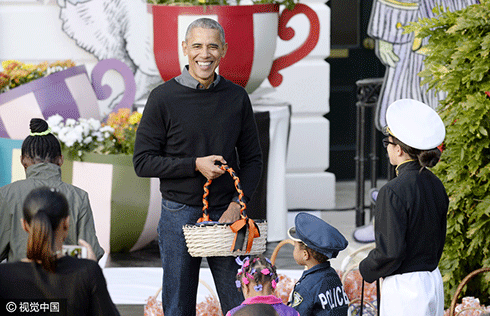Vote of approval for China's rights record
Updated: 2016-11-02 07:35
(China Daily)
|
||||||||
 |
|
WANG XIAOYING/CHINA DAILY |
China once again regained its seat in the United Nations Human Rights Council with 180 votes on Oct 28. This is the fourth time China has become the member of the top UN human rights body with a high percentage of votes.
China played an active role in the negotiations and final vote on the establishment of the UNHRC on March 15, 2006; it became the human rights body's member for three years after winning 146 votes on May 9 in the same year. In May 2009, China regained its seat by winning 167 votes. Since UNHRC rules say a country can be a member for only two consecutive terms, China resumed its three-year membership again after winning 176 votes on Nov 12, 2013.
The number of votes won by China has steadily risen in the past decade-it is the highest among the Asia-Pacific group and the second-highest among all candidates. A country needs more than half of the UN General Assembly members' votes to become a member of the UNHRC, and China has gained more than two-thirds of the General Assembly's votes four times. This means China has won the recognition of most countries in the international community.
The 180 votes won by China this time indicates the international community is satisfied by China's performance during its third tenure in the UNHRC from 2014 to 2016. In the past three years, China has taken active part in the council's activities and fulfilled its due responsibilities.
That China has got a seat in the UNHRC for the fourth time also indicates the international community approves of China's measures to protect human rights, because candidate countries' records in human rights protection are important factors that influence voters' decisions. So China will use its fourth term as a member of the UNHRC as an opportunity to push forward international human rights causes.
Luo Yanhua is a professor of international relations at Peking University.
- Regular China-South Asia freight train launched
- Police swoop on Paris migrant camp after Calais Jungle clearout
- Regular China-South Asia freight train launched
- South Korean prosecutors arrest woman at centre of political crisis: media
- EU, Canada sign landmark deals to enhance economic, political partnership
- Wife raises funds to search for missing sailor

 Obamas host White House Halloween for children
Obamas host White House Halloween for children
 China Fashion Week: Liu Yong Exclusive
China Fashion Week: Liu Yong Exclusive
 Top 5 collaborating countries in Belt and Road Initiatives
Top 5 collaborating countries in Belt and Road Initiatives
 Hand-carved buckets face possible extinction in Zhejiang
Hand-carved buckets face possible extinction in Zhejiang
 Jet fighters and bombers ready for Air Show China
Jet fighters and bombers ready for Air Show China
 The World in photos: from Oct 24 to Oct 30
The World in photos: from Oct 24 to Oct 30
 Through the lens: The life of a kung fu master
Through the lens: The life of a kung fu master
 In pics: Top 10 Chinese cities in 2016
In pics: Top 10 Chinese cities in 2016
Most Viewed
Editor's Picks

|

|

|

|

|

|
Today's Top News
US election rhetoric unlikely to foreshadow future US-China relations
'Zero Hunger Run' held in Rome
Trump outlines anti-terror plan, proposing extreme vetting for immigrants
Phelps puts spotlight on cupping
US launches airstrikes against IS targets in Libya's Sirte
Ministry slams US-Korean THAAD deployment
Two police officers shot at protest in Dallas
Abe's blame game reveals his policies failing to get results
US Weekly

|

|








